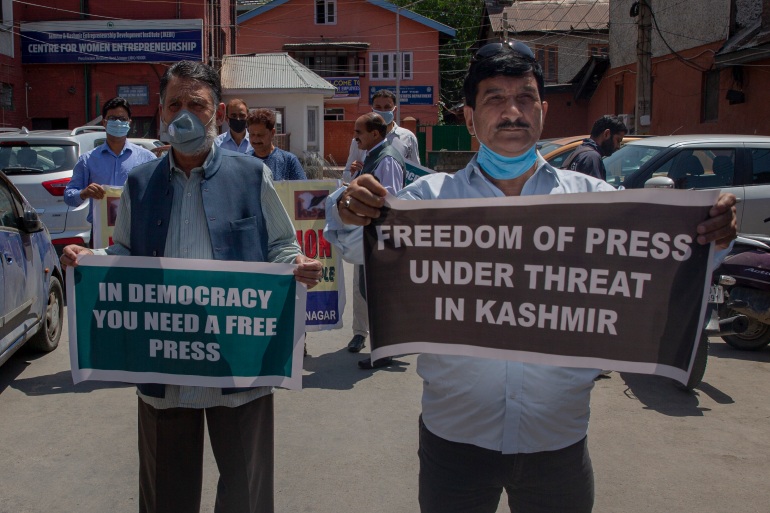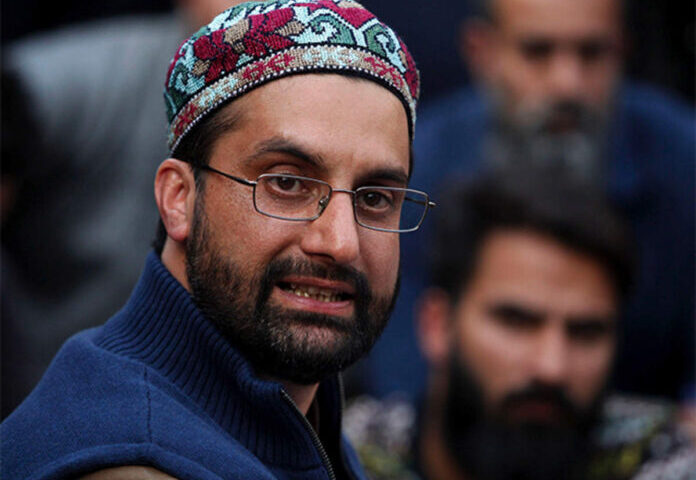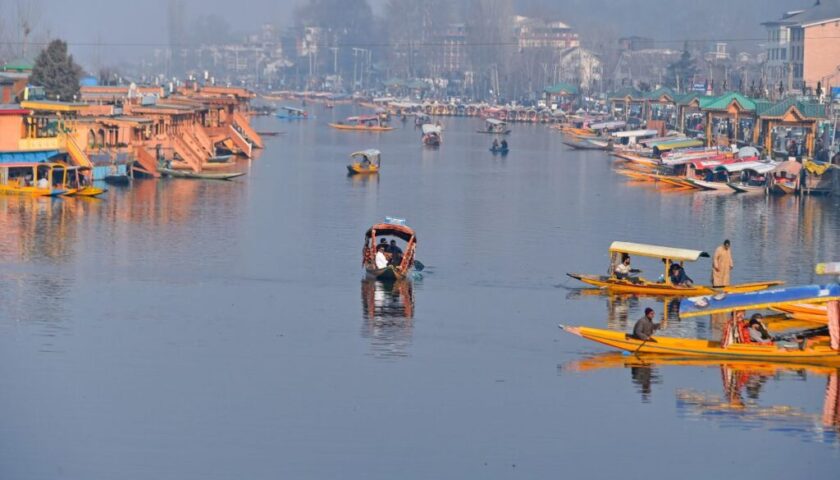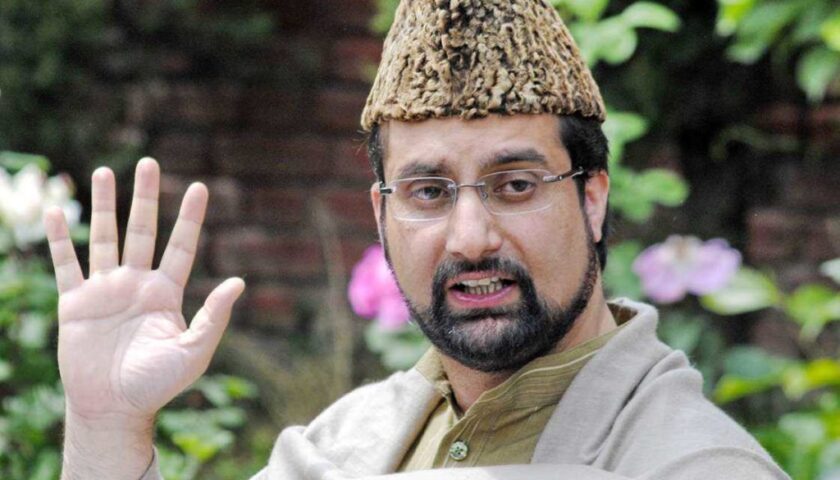Jammu and Kashmir government on Monday canceled the allotment of building and land which housed Srinagar’s Kashmir Press Club, two days after it was taken over by a small group of journalists.
Srinagar (KIF): The Kashmir Press Club in Srinagar was permanently shut down on Monday with its premises formally taken over by the government of the union territory of Kashmir. The government announced that the biggest journalist body of the Valley has ceased to exist – it has lost its registration as a society, its land has been reclaimed by the government.
The intentions of the administration were clear on Friday, a day after the Press Club said elections were to be held for key posts on February 15. The next day, a group of journalists, seen as supporters of the government and accompanied by armed policemen, barged into the club and locked the premises, preventing independent journalists from entering the area, and declaring that they would now run the organization.
In its dismantling of the civil society group, the government has followed the template it used in November 2018 to dissolve the Jammu and Kashmir assembly. Soon after regional parties formed an alliance and staked claim to form the government, so did a rival group with the support of the BJP. The then Governor Satya Pal Malik said he didn’t receive any letter from the regional parties about their right to form the government because the fax machine in his office was not working. He then dissolved the assembly, needed, he said, to prevent parties from buying each other’s MLAs in their effort to prove they had the required numbers to form the government.
The Kashmir Press Club, founded in 2018, was the largest body of independent reporters in a region where the freedom of the press has been steadily eroding. A year after Jammu and Kashmir were declared no longer a state, and its special status and autonomy were removed, the club was asked to register anew as a society. That process was completed in December but suddenly, two weeks ago, the new registration was put on hold with the government claiming that the Criminal Investigation Department (CID) of police had given adverse reports about the character and antecedents of those on the governing body of the club.
The club has been prevented from holding democratic elections for its governing body. The administration says its intervention was imperative after reports in “social media and sources” about “a potential law and order situation” and breach of peace; it said it was also looking out for the safety of journalists.
The Press Club had 300 members. With it being made defunct, the government’s approach is quite evident – it will not allow any institution which doesn’t toe the official line or is in sync with the political ideology of the ruling party. The only platform which raised the voice against frequent harassment of journalists has been shut, de-registered and dispossessed. “Stifling of the voice” of journalism, the club said in a statement.
Kashmir has lost all its social spaces. Trade unions, rights bodies, and civil society groups have literally vanished. Elections to the Kashmir Chamber of Commerce and Industries, as also the Kashmir High Court Bar Association have been effectively stalled. Jamia Masjid Srinagar, the largest social and cultural space in Kashmir, has largely remained closed for Friday prayers since August 2019. Democratic processes are being wiped out.
Elections to 20 District Development Councils were held in December 2020. These were the first elections where the people voted after Jammu and Kashmir were replaced as a state by two union territories. The Gupkar Alliance, which includes regional parties who were long-time rivals, performed well in these crucial elections. A certain amount of manipulation ensured that the alliance of six parties did not succeed in getting control of fewer councils than their votes enabled.
While a large section of the local media, dependent on government advertisements, has long fallen in line, many independent journalists and working journalists refused to submit and ensured that Kashmir Press Club was not remote-controlled; they were challenged with multiple cases of harassment against journalists, police FIRs and detentions.
Independent journalists in Kashmir have always been vulnerable. At the peak of militancy and separatism, those who refused to toe the line became the target of terrorists. Shujaat Bukhari, killed in June 2018 by terrorists, is among over a dozen Kashmiri journalists who died for doing their job.
There is a long list of journalists who have faced threats and intimidation by separatists and terror groups and governments. I have had my own share, and have also endured a social boycott for doing my job. But the way the government is now systematically stifling media is appalling. In the last two years, journalists have been officially barred from covering encounters and law and order situations in Kashmir. Tweets and other social media posts have landed journalists in jail, many are facing criminal charges.
Kashmiri American poet Aga Shahid Ali has written of a “country without a post office”. Kashmir Press Club was the post office of journalists – the last bastion of free space in the Valley is gone.
Meanwhile, The Jammu and Kashmir government on Monday canceled the allotment of building and land which housed Srinagar’s Kashmir Press Club, two days after it was taken over by a small group of journalists flanked by the police.
The government said that it wanted to avoid a law and order situation after “rival groups levelled various allegations against each other”. The premises have been handed over back to the estates department.
The government had faced criticism after the forcible takeover of the KPC premises by a group of journalists led by M Salim Pandit and accompanied by armed policemen on Saturday. The Editors Guild of India termed the forcible takeover by the group a ‘coup’ while former chief ministers Omar Abdullah and Mehbooba Mufti went on to tag it as a “state-sponsored coup”.
“…The rival groups have been levelling various allegations against each other also with regard to the use of the premises belonging to the estates department that was being used for the legitimate use of the members of the journalistic fraternity. In view of this aspect of the dispute and in view of the reports in social media and other sources indicating a potential law and order situation, including a threat of breach of peace and the safety of bona fide journalists, the intervention has become necessary,” the government said in a statement issued through the information department.
Although the two-year term of the 11-member executive and management body of the 300-member strong club, which was elected in 2019, had ended last year in July, they said they could not conduct fresh elections immediately owing to mandatory re-registration of the club which was asked by the authorities.
The takeover by the ‘disgruntled’ group, alleged to be supported by the local administration, had come a day after the administration suspended the KPC’s re-registration certificate – which had been issued by the authorities after seven months on December 29.
Nine journalists’ bodies of Kashmir, including the elected Kashmir Press Club body, had termed the takeover as “illegal and arbitrary”.
The government statement said the KPC as a registered body has ceased to exist and its managing body, too, has come to a legal closure on July 14, 2021, the date on which its tenure came to an end.
It said in view of the “dissensions between various groups of journalists, it has been decided that the allotment of the premises at Polo View in view of the now deregistered Kashmir Press Club be cancelled and control of land and buildings situated at Polo View, Srinagar, which belongs to the estates department be reverted to the said department”.
“The government is committed to a free and fair press…and also hopes that a duly registered bona fide society of all journalists shall be constituted as soon as possible and the same shall be able to approach the government for reallocation of the premises,” the statement said.
PDP president Mehbooba Mufti said in a tweet: “It seems that the coup and its aftermath was entirely orchestrated to shut down another outlet that served as a medium for journalists to debate and discuss their opinions freely. With every passing day, all the safety valves to express dissent are being muzzled.”




